People frequently ask me to put together a list of recommended books, something I’ve found difficult to do. Many of the books that have influenced me aren’t suitable for a list like that. Either they are too long, have a lot that I disagree with in them, or otherwise titles I don’t feel I can recommend with confidence.
However, I did put together this list of 17 books across six categories - three for every category except one. These are books I found compelling, educational, or which have influenced how I think about the world. I hope you find them valuable too.
Changing the World
Influence: The Psychology of Persuasion (1984) by Robert Cialdini. Cialdini is a psychologist who is the godfather of persuasion. He was an advisor to Barack Obama’s 2012 campaign. This book is a classic.
From Zero to One by Notes on Startups, or How to Build the Future (2014) by Peter Thiel with Blake Masters. Thiel’s book on startups, on how to build the very first version of something, is full of insight. “Brilliant thinking is rare, but courage is in even shorter supply than genius.”
To Change the World: The Irony, Tragedy, and Possibility of Christianity in the Late Modern World (2010) by James Davison Hunter. Sociologist Hunter explains how culture actually changes - from the top down, via networks near the cultural center. I do not find his proposal for “faithful presence” compelling, but the analysis in this book is great.
Real World Risk
I have been heavily influenced by former options trader Nassim Nicholas Taleb. His ideas about probability and risk are profound and powerful. Many people don’t like Taleb’s online personality, but his work has a ton of insight. He has five books in a series he’s come to dub the Incerto. But I highlight the two must-reads here.
Fooled by Randomness: The Hidden Role of Chance in Life and in the Markets (2001) by Nassim Nicholas Taleb
Antifragile: Things That Gain from Disorder (2012) by Nassim Nicholas Taleb. This book recapitulates Taleb idea about “black swans,” and talks about how to structure ones life in light of randomness and black swan effects.
I devoted newsletter #14 to discussing Taleb’s work and how it applies in a Christian context. I also wrote a review of his book Skin in the Game for City Journal.
Taleb’s essay on the rule of the intolerant minority (which was included in Skin in the Game) is a great addition to my changing the world list.
Current American Dysfunctions
The Two-Parent Privilege: How Americans Stopped Getting Married and Started Falling Behind (2023) by Melissa S. Kearney. Economist Kearney looks at the grim statistics around the children who aren’t raised in an intact family (though she would not use that phrase). I previously summarized some findings from her book.
Glass House: The 1% Economy and the Shattering of the All-American Town (2017) by Brian Alexander. A great look at the reality of private equity in America, and how it grinds up communities like Lancaster, Ohio, the focus of this book. There are many more insights about changes in America in this book as well.
American Made: What Happens to People When Work Disappears (2021) by Farah Stockman. Stockman, a reporter for the New York Times, follows three workers as the bearing plant in Indianapolis they worked for was closed and relocated to Mexico. A powerful look at the life of workers in today’s American industrial economy.
I reviewed this book for American Compass.
I have one additional book on this topic filed under the masculinity section below.
American History
I selected here some books that give perspectives on American history that you aren’t likely to hear about in school or from pundits.
Puritan Boston and Quaker Philadelphia (1979) by E. Digby Baltzell. Sociologist Baltzell was the leading authority on the American upper class. He’s the person who popularized the term “WASP.” This book provides a very interesting lens on the role of religion in American culture, as well as the nature and structure of the American upper class. If you don’t understand social class, which few people do today, you can’t understand much of American history.
I wrote a major retrospective on the work of E. Digby Baltzell for American Affairs.
Anointed with Oil: How Christianity and Crude Made Modern America (2019) by Darren Dochuk. This is a tour-de-force by Notre Dame historian Dochuk, who tells the history of 20th century America through the intertwining stories of the oil industry and Christianity. As with Baltzell, this will change how you view American history.
I interviewed Dochuck about his book.
The Rise and Fall of Anglo-America (2004) by Eric P. Kaufmann. Neoconservative political scientist Kaufmann is a mixture of Jewish, Chinese, and Costa Rican by ethnic background. Raised in Canada and Japan, he’s now a professor in the UK. I don’t believe he’s ever lived in America, but he’s a keen observer of it and its history.
This book tells the story of American ethnicity from the founding to the present day. Originally published by Harvard University Press, it somehow got memory holed. He uploaded a PDF of the book for free download, however.
Political Strategy
Exit, Voice, and Loyalty: Responses to Decline in Firms, Organizations, and States (1970) by Albert O. Hirschman. This book is a classic that describes the two basic strategies an unhappy customer can adopt when faced with a poorly performing institution: voice or exit.
The Rhetoric of Reaction: Perversity, Futility, Jeopardy (1991) by Albert O. Hirschman. Besides his most famous work above, Hirschman wrote some other short and interesting books. This one accurately describes how the majority of conservative or right wing rhetoric falls into one of three basic patterns. (People on the left adopt these as well, though are typically arguing from a conservative perspective when they do).
The Forest Passage (1951) by Ernst Jünger. Jünger was one of the great 20th century German intellectuals. A decorated soldier in World War I - his WW I memoir A Storm of Steel is his best known book - he lived until 1998. This man saw a lot. His short book The Forest Passage is a meditation on how to live under an authoritarian regime.
Masculinity
Of Boys and Men: Why the Modern Male Is Struggling, Why It Matters, and What to Do about It (2022) by Richard V. Reeves. As with Kearney’s book on two parent families, the center-left Reeves did a lot to socially legitimize, in the mainstream, caring about the challenges facing young men.
I reviewed this book for the Institute for Family Studies
Lastly, I’ll recapitulate two titles from my recent essay on gender anthropology.
Manhood in the Making: Cultural Concepts of Masculinity (1991) by David D. Gilmore. A global anthropological survey of what it means to be a man.
Gender (1982) by Ivan Illich. Illich was a radical Catholic priest who was a major critic of technological modernity. Too major a critic, though for that reason his books continue to challenge and inspire. This work, which defended the idea that men and woman are anthropologically distinct, helped sink his influence as he was viciously attacked by feminists over it. His observation that promotion of gender sameness is a product of what we would today call neoliberal hegemony remains incisive.
Note: Contains Amazon affiliate links



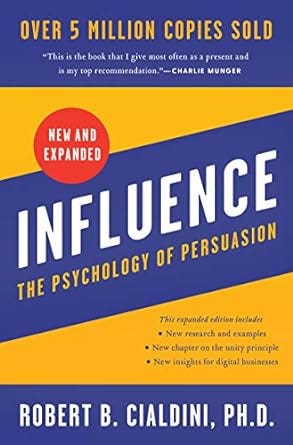

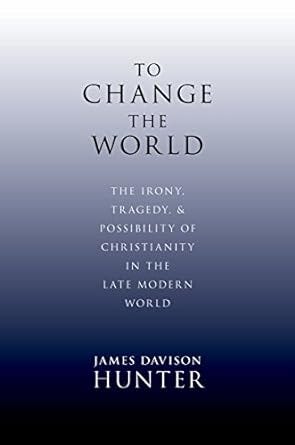
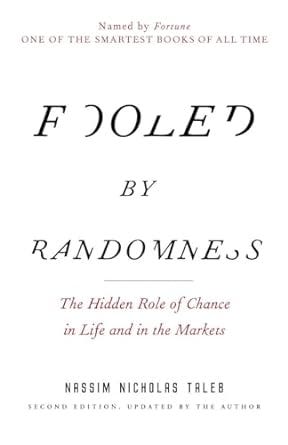



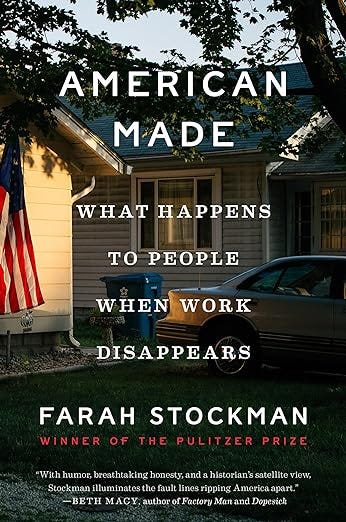

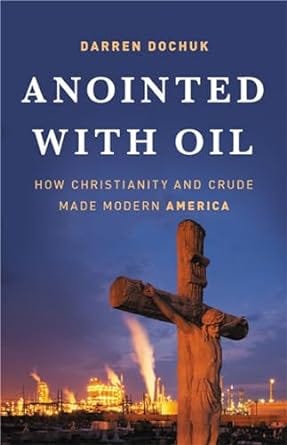
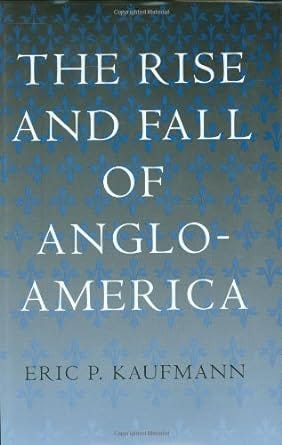

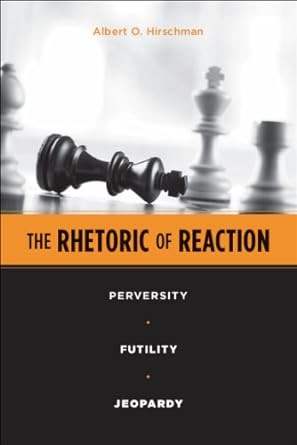


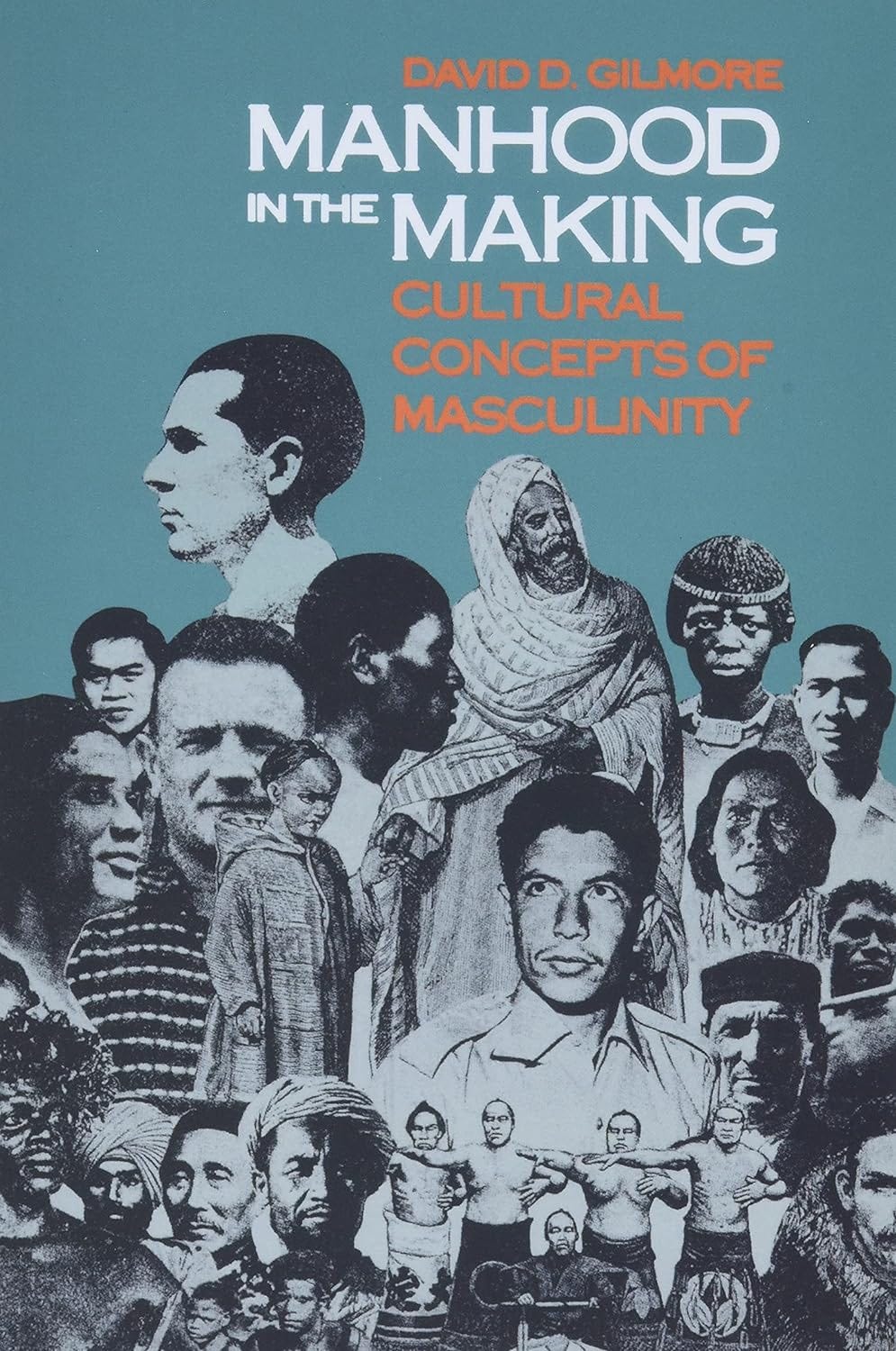

A few other books that might balance these out ...
https://www.goodreads.com/book/show/757114.Death_in_the_City
https://www.goodreads.com/book/show/26195941-the-age-of-surveillance-capitalism
https://www.goodreads.com/book/show/1050474.Without_God_Without_Creed
https://www.goodreads.com/book/show/50611052-the-rise-and-triumph-of-the-modern-self
https://www.goodreads.com/book/show/6000482-tyranny-of-reason
https://www.goodreads.com/book/show/592322.Warranted_Christian_Belief
https://www.goodreads.com/book/show/1731992.The_Reformers_and_Their_Stepchildren
https://www.goodreads.com/book/show/348876.Missiological_Implications_of_Epistemological_Shifts
https://www.goodreads.com/book/show/29765180-escape-from-reason
https://www.goodreads.com/book/show/79428.The_Abolition_of_Man
https://www.goodreads.com/book/show/50403471-what-tech-calls-thinking
https://www.goodreads.com/book/show/20408652-what-we-can-t-not-know
https://www.goodreads.com/book/show/13338240-the-inquiring-mind
https://www.goodreads.com/book/show/1015540.Preaching_Eugenics
https://www.goodreads.com/book/show/5592.From_Counterculture_to_Cyberculture
... and ... I'll add my humble entry into the fray around culture and technology here ... feel free to delete this bit if I shouldn't --
https://www.goodreads.com/book/show/59893085-unintended-dystopia
I didn't know where else to make this comment, but I wanted to kvetch about Taleb's criticism of "The Millionaire Next Door" (which I've used in personal finance classes I've taught), as expressed in "Life in the Negative World." I'm not sure if you've read the original source material (I haven't read Taleb), but according to your summary, Taleb is full of crap on this.
In "Life in the Negative World,": "[Taleb] contends that simply looking at successful people's action's and then extrapolating lessons from what they did is subject to "survivorship bias." For example, the authors of The Millionaire Next Door looked at millionaires to see what they had in common, but they didn't examine the people who did the very same things yet ended up far less wealthy - or even bankrupt. By definition, the method excluded failures from the sample."
Yes, they interview a bunch of millionaires to find commonalities between them, but nowhere in the book do they say, "Do these things and you too will become a millionaire." And they did not only look at millionaires. Much of the book compares people with the same incomes but very different consumption and investment habits, which leads to very different net worths over time. If this isn't including "failures" in the sample, what would be? It's hard to imagine, as the habits emphasized are living well below one's means and investing the bulk of one's savings - how is a researcher going to identify people who did that but were "failures"?